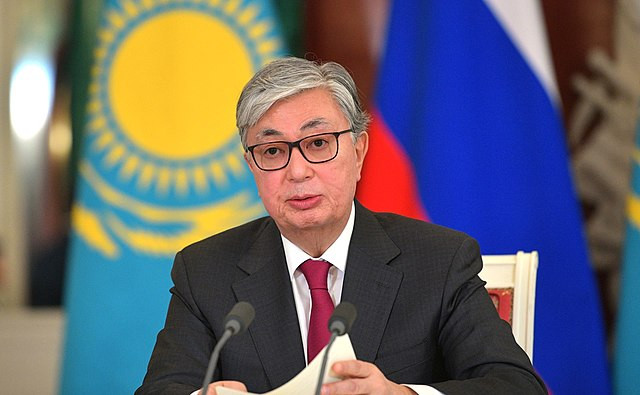The Kazakh government led by Prime Minister Alichan Smailov has resigned, a move that was promptly accepted by President Kassym-Jomart Tokayev. The president has appointed Deputy Prime Minister Roman Sklyar as the acting successor, signaling a transitional phase in the nation's executive leadership. This reshuffle comes amidst President Tokayev's vigorous push for sweeping reforms aimed at rejuvenating the Kazakh economy and attracting foreign investment.
The resignation, which was announced by the president's office, did not specify the reasons behind the government's decision to step down. However, it is widely interpreted as a response to President Tokayev's dissatisfaction with the Cabinet's performance, particularly in economic matters. The move reflects Tokayev's commitment to steering Kazakhstan towards a more prosperous future, underscoring the considerable authority vested in the presidency within the Central Asian nation's political structure.
Kazakh political scientist Talgat Kaliyev, speaking to the Spanish news agency EFE, highlighted that the resignation was closely tied to the country's economic trajectory. "The president criticized the government for its inability to propose an effective economic strategy," Kaliyev noted, emphasizing the critical backdrop against which the government's resignation unfolded.
The departure of Smailov's Cabinet follows a period of heightened scrutiny from President Tokayev, who had previously expressed concerns over the government's handling of key issues such as inflation and the need for modernization of the country's aging infrastructure. The reshuffle is not merely an administrative change but a clear indication of Tokayev's resolve to address these pressing challenges head-on.
Smailov, who took the helm as prime minister in the aftermath of the violent protests in January 2022, which marked the worst unrest since Kazakhstan's independence from the Soviet Union in 1991, has been seen as a technical figure in the nation's political arena, with President Tokayev emerging as the dominant force.
As Kazakhstan awaits the nomination of a new prime minister by the ruling Amanat party, which will then be submitted to parliament for approval, the political landscape is poised for a significant transformation. President Tokayev is expected to outline the priorities for the new Cabinet in an upcoming meeting with top officials, setting the stage for a new chapter in Kazakhstan's governance aimed at bolstering economic development and ensuring stability.




